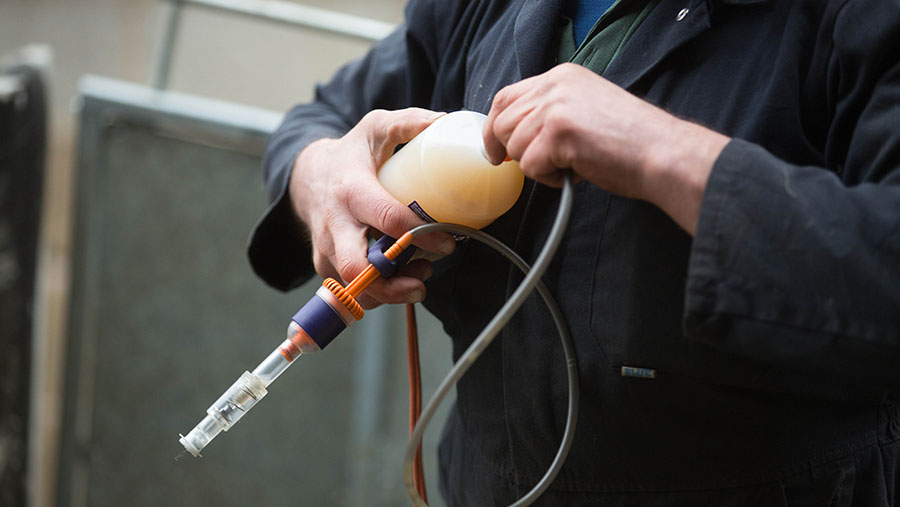Business Clinic: Have I missed out on employment benefits?
 © Tim Scrivener
© Tim Scrivener Whether you have a legal, tax, insurance, management or land issue, Farmers Weekly’s Business Clinic experts can help.
Natalie Ward, senior associate with Thrings, advises on the increasingly common issue of whether someone is self-employed, an employee or classed as a worker.
Q. I am a self-employed general farmworker who has been working for a single client for more than a year. I recently stopped working for them.
However, my work has been consistent throughout the year and I believe I should have been employed, not self-employed, as I have missed out on holiday pay, pension contributions and national insurance (NI) contributions.
We didn’t implement any contract or have a written record of terms when I started working there. I only provided labour, as I used their tools, personal protective equipment, cars, tractors equipment and so on.
When I had time off, my position was not filled, as I was seen as any normal member of staff.
I invoiced them monthly on an hourly rate. Who is liable to pay for my tax contributions and am I able to claim compensation for holiday pay, as I feel I was a disguised employee?
A. Employment status is a hot topic in the employment and tax arenas at the moment, and the subject of a considerable body of case law.
In terms of your query about employment benefits, which would include holiday pay and pension contributions, this is something that would be decided by the employment tribunal. Alternatively, you could approach the business and put it to them that you were an employee or a worker.
However, I think it unlikely they would agree, as this has cost implications for them.
Taking the tribunal route, you would need to issue a claim, and as a preliminary matter, assert in your claim form that you were actually employed or a worker of the farm business and not merely self-employed.
See also: Business Clinic – A tricky family farm ownership dispute
During a hearing, the employment tribunal would apply a number of tests to reach its conclusion as to your correct status.
In the absence of written documentation between you and the farm, the tribunal would want to understand at whose request it was that you work on a self-employed basis in order to establish the understanding of the parties at the time your engagement began.
The fact you refer to yourself as self-employed and issued the farm with monthly invoices on an hourly rate would seem to suggest a self-employed arrangement was envisaged, at least at the outset.
On the other hand, the fact you used the farm’s tools, equipment, vehicles and PPE, and that this farm was the only farm you worked for, is more consistent with employment.
However, the tribunal would look beyond that and to examine in more detail the day-to-day reality of your relationship and the manner in which you worked for the farm.
It would seek evidence from both parties about who determined when you worked and how you carried out that work; whether you were integrated into the workforce and treated like an employee; and whether you had the ability to turn down work.
The more control the farm exercised, the more likely it is that you were their employee, rather than self-employed.
If the tribunal doesn’t find that you satisfy the tests for employment, it may find that your correct status is that of a worker.
A worker is entitled to some of the same rights as an employee, such as holiday pay and sick pay, but not full employment protection such as the right not to be unfairly dismissed.
A worker performs work personally to the engaging business, but the relationship between them is not that of client and service provider (as would be the case with a self-employed contractor and their farm business client).
If the tribunal finds that you were an employee or a worker, it is likely to award you backdated holiday pay for a certain period of time.
However, employment tribunals do not deal with tax issues, and a separate determination would need to be made by the tax tribunals – most likely at the instigation of HMRC – that you were an employee and should have had deductions of PAYE and employee’s NI applied to your earnings.
That being the case, your employer would be liable for tax which should have been deducted through PAYE and for employer’s NI contributions, as well as penalties and interest for late payment.
A finding of employment in employment tribunals does not necessarily mean the tax tribunals will make the same finding, although because they apply similar tests, the outcome is likely to be the same.
We recommend you seek advice from a qualified tax accountant in relation to your employment status for the purpose of tax and NI contributions.
You could also use HMRC’s online employment status tool, known as the Check Employment Status for Tax tool, or “CEST”, to give you an indication of your employment status.
Do you have a question for the panel?
Outline your legal, tax, finance, insurance or farm management question in no more than 350 words and Farmers Weekly will put it to a member of the panel. Please give as much information as possible.
Send your enquiry to Business Clinic, Farmers Weekly, RBI, Quadrant House, The Quadrant, Sutton, Surrey SM2 5AS.
You can also email your question to fwbusinessclinic@rbi.co.uk.

